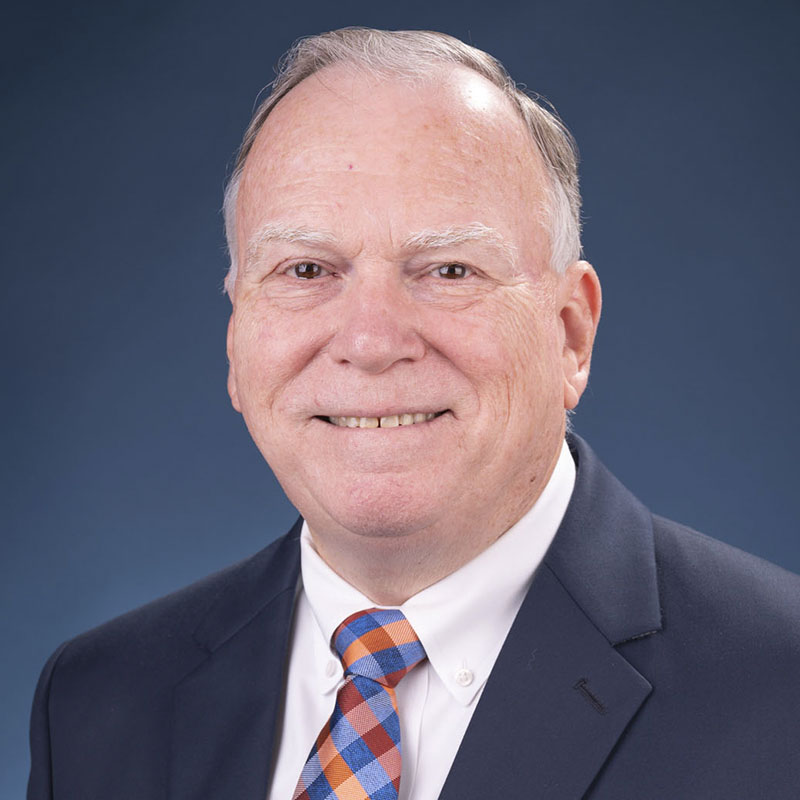It’s not easy to forgive enemies. But what about when a fellow Christian hurts you? Or a friend or family member? What factors should you consider?
Sometimes the most easy-to-understand statements are the most difficult to practice. Probably millions of people have repeated Jesus’ words from His model prayer in Matthew 6: “Forgive us our debts, as we forgive our debtors.” And probably millions have discovered that while it’s easy to desire forgiveness from God, it can be really hard to extend it to someone else.
It might be even more difficult, some have observed, to forgive our friends than our enemies. Why? Because we expect wounds from strangers or enemies, but being profoundly hurt by someone we love cuts more deeply. When we are hurt by a friend, family member or fellow Christian, it can feel like a betrayal or treachery.
Yes, forgiveness is challenging, but necessary (Matthew 6:14-15). Here are four keys to understanding how to deal with some of the complexities involved.
1. Time—and hard work and repetition—heals all wounds.
The old adage “time heals all wounds” is woefully inadequate. Would you leave a serious physical wound untended, believing that it would heal fine if given enough time? Of course not.
Just as serious physical wounds need repeated proper treatment over a long period of time, so do emotional wounds. Forgiveness is a key treatment for good mental and spiritual health. But forgiving others, while it often does take time, usually requires two more important elements—hard work and repetition.
Our perfect God can immediately remove our sins as far as the east is from the west (Psalm 103:12). But we weaker humans struggle. For us, forgiveness is frequently a repetitive process requiring diligent work over a period of time.
Have you ever thought you had forgiven someone, only to discover that when something triggered memories of a bad experience, hurt feelings came flooding back? What should you do? Rinse and repeat!
We sometimes find ourselves needing to forgive once again what we had already forgiven before! That’s often the battle we face, but repeated efforts eventually settle forgiveness permanently into our mind-set.
I once knew a lady who had been through a long-term abusive relationship. Hurts ran deep, but she knew that bitterness would destroy her, and that forgiveness was the tool God would use to help her heal.
Years later she related to me how it took her five years of persistently working at it, continually praying for God’s help to be able to forgive and not be bitter. Then one day, she said, “I realized, it’s gone!” The hurt had finally drained away, but only because she tenaciously fought to follow God and do the right thing.
At no time did she say, “This forgiveness thing just doesn’t work for me.” No, she kept at it, kept seeking God’s help . . . because it was the right thing to do!
Her motivation ran deeper than just seeking personal peace of mind, though. She knew the first part of Ephesians 4:32, where it instructs us to be “forgiving one another,” but the last part also resonated: “even as God in Christ forgave you.”
She remembered going to God many times, asking for His forgiveness for her part in crucifying Christ—which is what our sins have done (Acts 2:36-38)—and for God’s repeated graciousness to her. We, in turn, are to take on His graciousness and extend it to others who have hurt us.
Yes, it’s hard, and we may have to do it repeatedly over time, but forgiveness does heal wounds.
2. The forgive-and-forget fallacy.
I’ve talked with people who have been confused because they carry vivid memories of the sins of others. They ask, “Aren’t we supposed to forgive and forget? If I remember, does that mean I have not forgiven?”
Forgiveness is complicated and often challenging—sometimes impossibly challenging on a human level! But with God’s divine help, we can meet that challenge!
Is forgiving the same as forgetting? Do we even have the capacity to “forgive and forget”?
When God says, “Their sins and their lawless deeds I will remember no more” in Hebrews 8:12 and 10:17, does He establish that as the standard to which we are held?
While He expects us to forgive others, God did not create us with a memory-erase function. Rather, He wants us to learn to properly deal with memories and use them to our advantage.
Many places in the Bible tell us to remember, and sometimes those are painful recollections. Five times in Deuteronomy God told Israel to “remember that you were a slave in the land of Egypt” and that God brought them out. That must have been excruciating—they would have recalled the Egyptians’ brutality, even the massacring of their children! Today we can recall our own slavery to sin and the pain some of those sins caused. We can also remember how the sins of others inflicted a lot of pain on us.
But notice what God adds: “Remember that you were a slave in Egypt, and you shall be careful to observe these statutes” (Deuteronomy 16:12, emphasis added). It doesn’t say, “Remember and never forget what others have done to you, so you can get even!” No, we are to remember the pain so we can learn to live God’s way. Isn’t one of the greatest values of memory to retain life’s lessons so we don’t repeat past mistakes—even other people’s mistakes that deeply hurt us?
When striving to forgive others, it’s not wrong to ask God to help us put those hurts behind us.
But if those memories are resurrected, and even if you spend some time dwelling on the past, that doesn’t mean you have not forgiven.
Sometimes situations arise that trigger unpleasant memories. You see something on TV, hear a song, see somebody, and immediately you flash back to that hurtful situation. Whether that is good or bad depends on what you do with the memories. You may momentarily become emotional, angry or depressed. But that doesn’t mean you have not previously forgiven. It does mean that you may have to walk once again through the forgiveness process you’ve been through before.
Remembering the past is natural, but we have to make it productive. Dwelling on the negative by playing that tape over and over again in your mind will encourage bitterness or resentment to rise to the surface.
On the other hand, as forgiveness is worked on, over time bad memories often grow dimmer and come less frequently. And as memories fade, desires to retaliate or be avenged also lessen. The pain eases because the wound is no longer so near the surface and so easily irritated.
Consider the apostle Paul. He wrote in Philippians 3:13-15 about “forgetting those things which are behind and reaching forward to those things which are ahead.”
The funny thing is, he hadn’t really forgotten the past! A few verses earlier he vividly described painful things in his past, things he now called garbage! While the memories weren’t gone, his point was that he wasn’t dwelling on his own dirty deeds or the dirty deeds of others toward him. He knew his past, but also knew he was forgiven, and knew he was forgiving of others, and that kept him balanced and moving forward in life.
Don’t try to forgive and forget—it’s impossible. But do aim to control the memories of the past through God’s Spirit, learning, growing and drawing ever closer to Him.
3. Forgiveness doesn’t always clean up the mess.
Forgiveness doesn’t always cancel every penalty of sin—the mess sins create. Even after God has canceled the spiritual penalty of eternal death in our lives, we may yet live with certain consequences.
For example, after abusing his or her body for years through smoking, a person may repent and stop. Yet I have known forgiven Christians who died from smoking-induced lung cancer. Should we conclude, “He died of cancer, therefore God must not have forgiven him”? No, even after God forgives us, we sometimes suffer physical and emotional penalties.
The same is true of our relationships with others. Even if you forgive someone, sin’s penalties may linger. Commonly, relationships suffer—marriages may end, family connections may crack, trust may be lost.
You may work through the forgiveness issues you have regarding another person, but you might not see reconciliation. It’s wonderful when you see one person’s forgiving of another doing away with the penalty of a broken relationship, but it doesn’t always happen.
That’s because reconciliation requires two elements from two people: repentance and forgiveness. Let’s say one person mistreats another and causes great damage. Only four results can come out of that relationship:
- The offender doesn’t repent, and the offended doesn’t forgive (the worst-case scenario).
- The offender repents, but the offended doesn’t forgive.
- The offender doesn’t repent, but the offended forgives anyway.
- The offender repents, and the offended forgives.
Only in the last one will the best-case scenario—reconciliation—take place. In the first instance neither person does right. In scenarios 2 and 3, where one does his or her part but the other doesn’t, the one who does the right thing will be clear before God, but the human relationship will remain unreconciled.
Until healing reconciliation takes place, penalties will still be felt. But, again, the fact that penalties remain does not necessarily mean that forgiveness has not been extended.
4. “To err is human, to forgive divine.”
Alexander Pope’s observation holds a lot of truth. All humans can forgive some things on their own. When the toddler in the grocery store blurts out, “You’re old and fat,” and his embarrassed mother begs my forgiveness, my feelings may be hurt, but I can forgive his childish transgression.
But sooner or later we run into forgiveness issues that we cannot work through on our own. We need something divine—God’s mind, God’s help. Our capacity to forgive will only come from His working in us, raising us to higher levels of spiritual performance than we are capable of on our own.
These are the times when we humbly appeal to God, “I’m so deeply wounded I don’t have it in me to forgive. Yet I want to follow You. I don’t want this to destroy me or my relationships with You or with others. Please help me with the spiritual understanding and perseverance I need to work through this.”
He will!
Forgiveness is complicated and often challenging—sometimes impossibly challenging on a human level! But with God’s divine help, we can meet that challenge!






